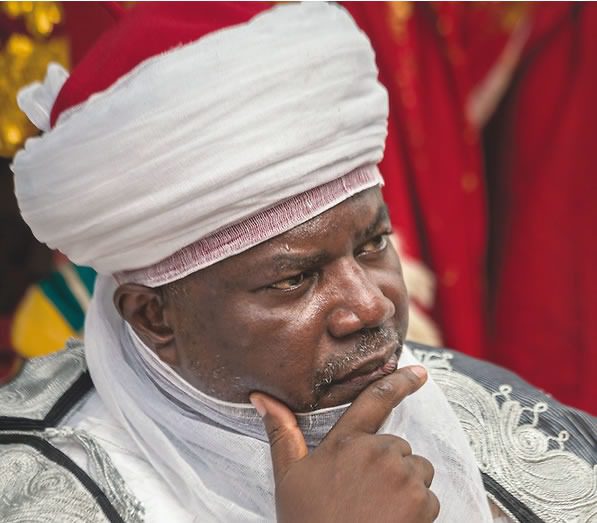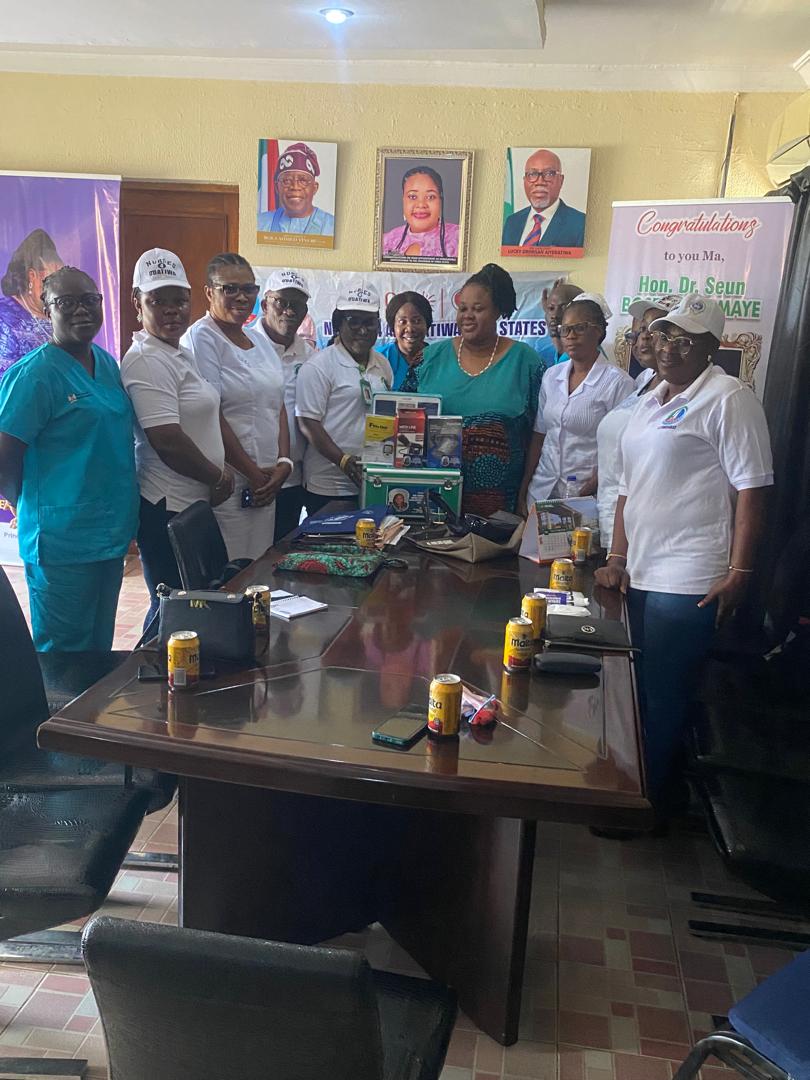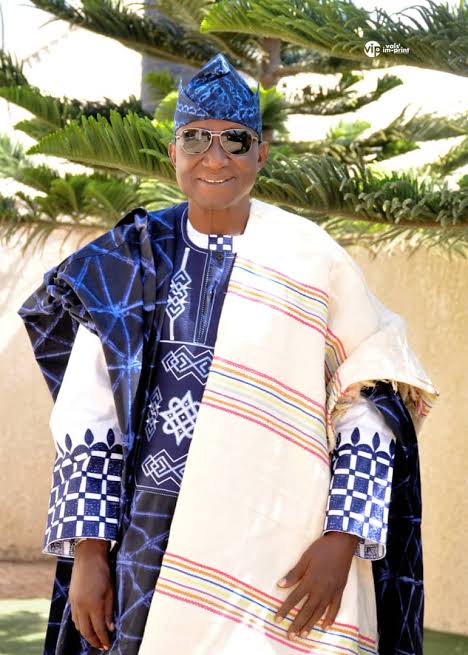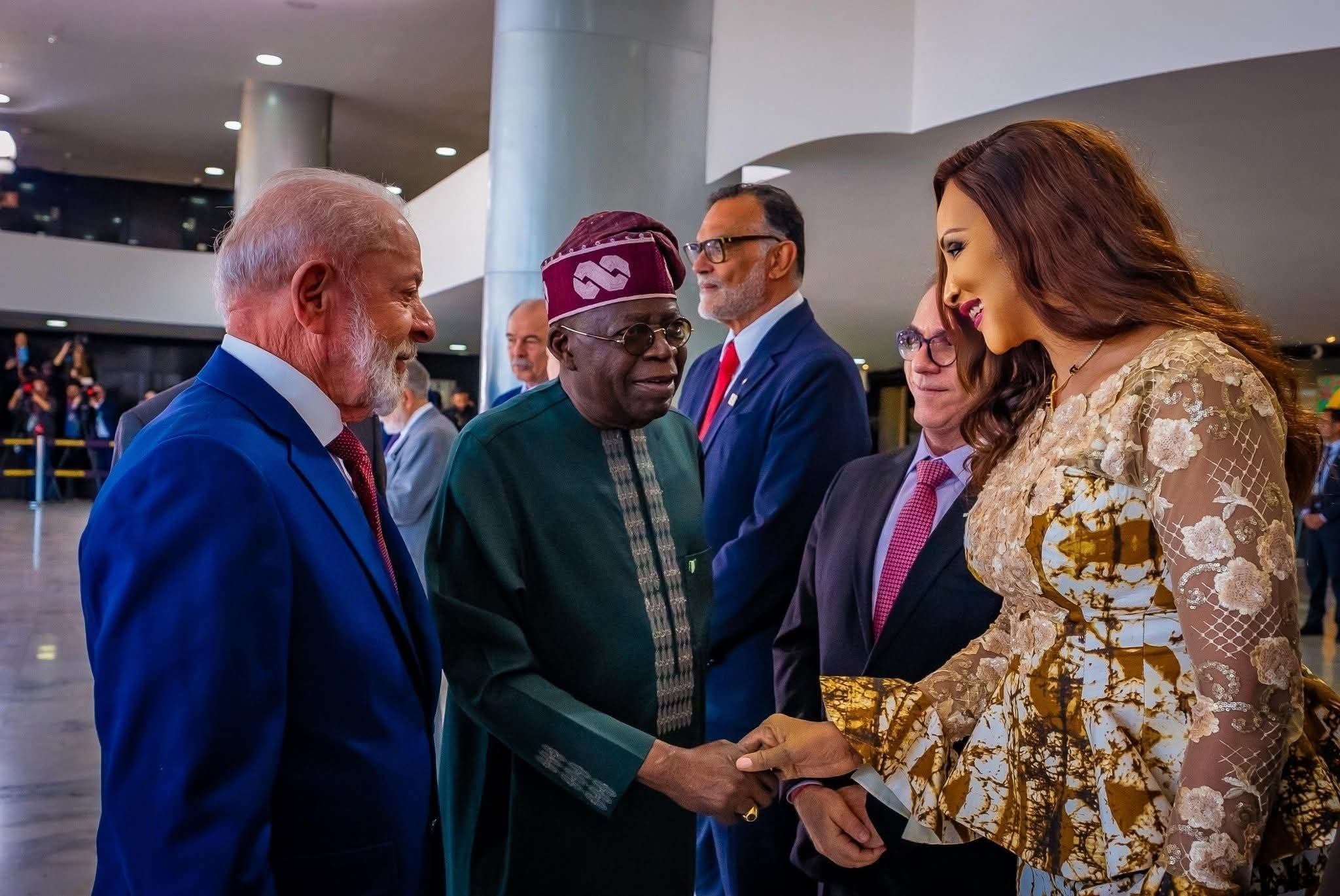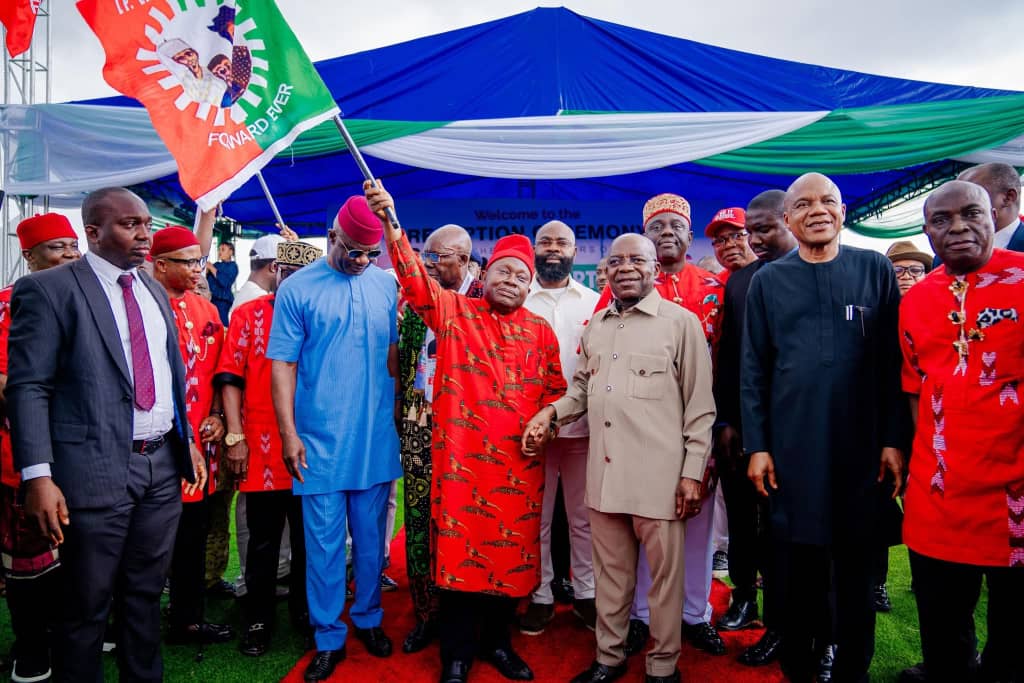Argungu, Kebbi State, Nigeria – On Saturday, August 30, 2025, the Emir of Argungu, Alhaji Samaila Muhammad-Mera, raised alarm over the increasing disregard for law and order across Nigeria, urging urgent reforms to strengthen the country’s justice system. Speaking during a courtesy visit by a delegation from the National Orientation Agency (NOA), led by its Director of Media and Communication, Bala Musa, at his palace in Argungu, Kebbi State, the monarch lamented the culture of impunity that has taken root in society. He criticized the tendency to celebrate individuals who engage in wrongdoing, warning that such practices erode societal values and hinder national progress. The Emir’s remarks underscore the critical role of traditional leaders in promoting civic responsibility and supporting government efforts to foster national unity and development.
The NOA delegation, representing Director-General Lanre Issa-Onilu, outlined the agency’s nationwide advocacy campaign aimed at securing the support of traditional rulers for government programs. The campaign focuses on promoting national values, enhancing security awareness, and improving communication of policies such as flood mitigation efforts. The Emir commended the NOA’s initiatives, describing them as timely and essential for driving value reorientation and strengthening Nigeria’s social fabric. This article provides a comprehensive analysis of the Emir’s call for reform, the NOA’s advocacy efforts, and the broader socio-political and cultural context of Nigeria, highlighting the implications for national development and governance.
The Emir’s Call for Justice System Reforms
During the courtesy visit, the Emir of Argungu, Alhaji Samaila Muhammad-Mera, expressed deep concern over the growing disregard for law and order in Nigeria, a trend he described as a significant threat to the country’s stability and progress. “Many citizens openly flout laws without consequences, a trend that encourages others to engage in similar acts,” the monarch stated, pointing to a culture of impunity that has become pervasive in various spheres of Nigerian society. He cited examples such as corruption, electoral malpractices, and disregard for traffic regulations, which have undermined public trust in institutions and eroded societal values.
The Emir criticized the societal tendency to celebrate individuals who should be condemned for their wrongdoing, noting that such behavior sends a dangerous message to younger generations. “When we glorify those who break the law, we weaken the moral foundation of our society. This must stop if we are to build a nation that values integrity and accountability,” he said. His remarks reflect a broader concern about the erosion of ethical standards in Nigeria, where wealth and influence often shield individuals from accountability, perpetuating a cycle of impunity.
To address these challenges, the Emir called for urgent reforms to strengthen Nigeria’s justice system, emphasizing the need for deliberate action to hold citizens accountable for their actions. “As traditional leaders, we will continue to do our best, but deliberate action is needed to hold citizens accountable for their bad actions if our country must make progress,” he stated. The Emir’s appeal highlights the critical role of the justice system in upholding the rule of law, ensuring fairness, and fostering a culture of accountability. He urged the government, law enforcement agencies, and judicial institutions to work together to address systemic weaknesses, such as delays in justice delivery, corruption within the judiciary, and inadequate enforcement mechanisms.
The Emir’s call for reform resonates with ongoing debates about the state of Nigeria’s justice system, which has faced criticism for its inability to effectively address crime, corruption, and human rights abuses. Issues such as prolonged pre-trial detention, overcrowded prisons, and inconsistent application of the law have undermined public confidence in the system. By highlighting these challenges, the Emir underscores the need for comprehensive reforms to restore trust and ensure that the justice system serves as a pillar of national development.
The Role of Traditional Leaders in National Development
As one of Nigeria’s most respected traditional rulers, the Emir of Argungu occupies a unique position in society, serving as a custodian of culture, a mediator in community disputes, and a bridge between the government and the people. His remarks during the NOA’s visit underscore the critical role of traditional leaders in promoting civic responsibility and supporting government initiatives. In Nigeria, traditional rulers wield significant influence, particularly in rural areas, where they command the respect and loyalty of their communities.
The Emir’s commitment to supporting efforts to address lawlessness reflects the broader role of traditional institutions in fostering social cohesion and national unity. Traditional rulers like the Emir of Argungu are often seen as moral authorities, capable of influencing public behavior and promoting values such as integrity, respect, and patriotism. By aligning with the NOA’s advocacy campaign, the Emir is leveraging his influence to amplify the agency’s message and drive positive change in Kebbi State and beyond.
The Emir’s critique of societal values also highlights the cultural dimensions of Nigeria’s challenges. In many communities, the celebration of wealth, regardless of its source, has contributed to a decline in ethical standards, encouraging corruption and lawlessness. Traditional leaders, with their deep understanding of local customs and values, are uniquely positioned to address these issues by promoting cultural practices that emphasize accountability, community welfare, and respect for authority.
The NOA’s Advocacy Campaign: Promoting National Values
The courtesy visit by the NOA delegation, led by Bala Musa, was part of a nationwide advocacy drive to secure the support of traditional rulers for government programs. Representing NOA Director-General Lanre Issa-Onilu, Musa outlined the agency’s campaign, which focuses on three key areas: promoting national values, strengthening security awareness, and improving communication of government policies, such as flood mitigation efforts. The campaign aims to foster a sense of civic responsibility among Nigerians, encouraging them to embrace national symbols and uphold the rule of law.
Musa emphasized the crucial role of traditional rulers in shaping national character and instilling civic responsibility. “Traditional rulers are crucial in shaping national character and instilling civic responsibility, and the Emir’s involvement will help deepen the campaign’s impact,” he said. The NOA’s decision to engage traditional leaders reflects their recognition of the influence these figures wield in mobilizing communities and promoting government initiatives.
The NOA’s state director, Mohammed Nasir-Karofi, provided further details on the campaign, noting that it would be rolled out across the 21 local government areas of Kebbi State through a variety of platforms, including press conferences, town hall meetings, advocacy visits, and community engagements. A key component of the campaign is to familiarize citizens with the new national anthem, adopted in 2024, and promote respect for national symbols, such as the Nigerian flag, the naira, and the Nigerian passport.
The reintroduction of the old national anthem, “Nigeria, We Hail Thee,” in 2024 was a significant cultural and political decision aimed at reviving a sense of national pride and unity. The NOA’s campaign seeks to ensure that citizens, particularly younger generations, understand the anthem’s significance and embrace it as a symbol of national identity. Similarly, promoting respect for the naira and the Nigerian passport is part of a broader effort to combat practices such as currency mutilation and the misuse of official documents, which undermine national dignity.
The focus on flood mitigation reflects the NOA’s response to Nigeria’s recurring environmental challenges, particularly in states like Kebbi, which are prone to seasonal flooding. By engaging traditional rulers and communities, the NOA aims to raise awareness about flood prevention measures, such as proper waste management and adherence to environmental regulations, to reduce the impact of natural disasters.
Socio-Political Context: Nigeria’s Challenges with Law and Order
The Emir of Argungu’s concerns about lawlessness and impunity are rooted in Nigeria’s broader socio-political challenges. The country has faced significant issues with law and order, including corruption, insecurity, and a lack of accountability among public officials and citizens alike. High-profile cases of electoral fraud, financial mismanagement, and human rights abuses have eroded public trust in institutions, contributing to a culture of impunity.
Insecurity remains a pressing concern, with banditry, kidnapping, and terrorism plaguing various regions, including Kebbi State. The North-West, where Kebbi is located, has been particularly affected by banditry, which has disrupted livelihoods, displaced communities, and strained security resources. The Emir’s call for a stronger justice system aligns with the need to address these security challenges through effective law enforcement and judicial processes.
Corruption, both at the governmental and societal levels, is another significant factor contributing to lawlessness. The celebration of ill-gotten wealth, as highlighted by the Emir, has normalized corrupt practices, undermining efforts to promote accountability and integrity. The NOA’s campaign to promote national values seeks to address this issue by encouraging citizens to embrace ethical behavior and respect for the rule of law.
Nigeria’s justice system faces systemic challenges, including inadequate funding, judicial corruption, and delays in case resolution. The Nigeria Correctional Service, for example, struggles with overcrowded facilities and poor conditions, which hinder rehabilitation efforts. Similarly, law enforcement agencies like the Nigeria Police Force face issues such as understaffing, lack of training, and allegations of brutality, which undermine their ability to maintain law and order.
The Role of the NOA in National Development
The National Orientation Agency, established to promote national unity and civic responsibility, plays a critical role in addressing Nigeria’s socio-cultural and political challenges. The agency’s advocacy campaigns are designed to foster a sense of patriotism, encourage ethical behavior, and improve public understanding of government policies. By engaging traditional rulers, the NOA leverages their influence to reach grassroots communities, where government communication often struggles to penetrate.
The campaign in Kebbi State is part of a broader effort to strengthen Nigeria’s social fabric and promote national development. By focusing on national values, security awareness, and policy communication, the NOA aims to create a more informed and engaged citizenry. The involvement of traditional rulers like the Emir of Argungu is a strategic move to ensure that these messages resonate with local communities, particularly in rural areas.
The campaign’s emphasis on national symbols, such as the anthem, flag, and passport, reflects the NOA’s commitment to fostering a sense of national identity in a diverse country like Nigeria. With over 250 ethnic groups and a history of regional tensions, promoting unity through shared symbols is a critical aspect of nation-building. The NOA’s efforts to address flood mitigation also demonstrate its responsiveness to environmental challenges, which have significant implications for public safety and economic stability.
Implications for Kebbi State and Nigeria
The Emir of Argungu’s call for justice system reforms and the NOA’s advocacy campaign have significant implications for Kebbi State and Nigeria as a whole. In Kebbi, the campaign’s rollout across the 21 local government areas offers an opportunity to engage communities, promote civic responsibility, and address local challenges such as insecurity and environmental degradation. The Emir’s involvement is likely to enhance the campaign’s impact, given his stature as a respected traditional leader.
At the national level, the collaboration between the NOA and traditional rulers sets a model for engaging grassroots communities in governance. Traditional institutions remain a vital link between the government and the people, particularly in regions where formal institutions face challenges in reaching citizens. By leveraging this partnership, the government can improve policy communication, foster public trust, and promote national unity.
The Emir’s call for justice system reforms also highlights the need for systemic changes to address Nigeria’s challenges with lawlessness and impunity. Strengthening the justice system requires investments in judicial infrastructure, training for law enforcement personnel, and measures to combat corruption. These reforms are essential for restoring public confidence, promoting accountability, and ensuring that Nigeria’s democracy thrives.
Community Reactions and Expectations
The Emir’s remarks and the NOA’s campaign have been met with optimism by stakeholders in Kebbi State, including community leaders, youth groups, and civil society organizations. Residents of Argungu and other parts of Kebbi have expressed support for the call for justice system reforms, citing the need for accountability to address issues like banditry and corruption. The NOA’s campaign has also been welcomed as a step toward fostering civic pride and responsibility.
However, some stakeholders have called for greater clarity on the specific reforms proposed by the Emir and the NOA’s implementation plans. Civil society groups have urged the government to prioritize funding for the justice system and ensure that the NOA’s campaign reaches marginalized communities. There is also a call for transparency in the campaign’s execution, with stakeholders emphasizing the need for measurable outcomes to ensure its success.
Looking Ahead: A Call for Collective Action
The Emir of Argungu’s appeal for justice system reforms and the NOA’s advocacy campaign represent a call for collective action to address Nigeria’s challenges with lawlessness, impunity, and societal decay. The collaboration between traditional leaders and government agencies like the NOA offers a pathway to promote national values, enhance security, and foster development. As the campaign rolls out across Kebbi State and other parts of Nigeria, its success will depend on the active engagement of communities, the commitment of government institutions, and the leadership of figures like the Emir.
The focus on justice system reforms is particularly timely, given Nigeria’s ongoing struggles with insecurity, corruption, and electoral malpractices. By strengthening the rule of law and promoting accountability, the government can create a more just and equitable society, paving the way for sustainable development. The NOA’s campaign, with its emphasis on national values and civic responsibility, complements these efforts, offering a platform to engage citizens and build a shared sense of purpose.
In conclusion, the Emir of Argungu’s call for urgent justice system reforms and the NOA’s advocacy campaign mark a significant moment in Nigeria’s journey toward national development. The partnership between traditional leaders and government agencies highlights the power of collective action in addressing systemic challenges and promoting unity. As Nigeria navigates its complex socio-political landscape, the commitment to strengthening the justice system and fostering civic responsibility offers hope for a more accountable, secure, and prosperous future.


